Why Brands Are Courting Made for a Woman’s Eileen Akbaraly

MILAN — More than making fashion products, Eileen Akbaraly is out there to make an impact.
Since launching her indie label Made for a Woman in 2019, the young Italian-Indian designer has been garnering attention one raffia-crafted piece at the time, leading her to drop the brand’s second collaboration with Chloé recently, kicking off a series of international pop-ups this week and working on upcoming exclusive collections with major retailers. All the while under the watch of big luxury conglomerates — led by LVMH Moët Hennessy Louis Vuitton — that are looking closely at the work Akbaraly is doing with her products as well as the root of her success, which both point to Madagascar.
More from WWD
People, Profit and Planet: Crystal International Group Shares Net Zero Vision 2050
Lightning Session: Laying Out AI in Retail and Sustainability Efforts in Minutes
How Patagonia Tackled the Dilemma of How to Be Profitable and Sustainable At the Same
To be sure, while her accessories and ready-to-wear collections stand out for their vibrant colors and joyful vibes, it’s the artisanal production and overall socially and environmentally responsible business model she implemented in the country she has grown up in that set her company apart.
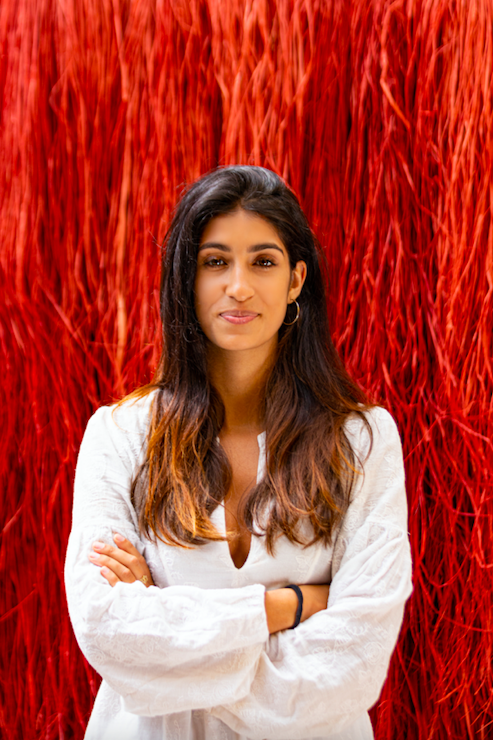
Made for a Woman is made by women. Defined more as a social entrepreneurship project than a fashion label, the company empowers local communities from vulnerable and disadvantaged backgrounds and promotes female craftsmanship in one of the poorest nations in the world, which paradoxically is also full of natural resources and potential.
“That’s why we are there: the suppliers, the atelier, the people. The goal is to contribute to the growth of the country at 360 degrees, not just to the one of [our] brand,” said Akbaraly.
Started with an atelier of 15 people, Made for a Woman’s raffia-filled factory in Antananarivo now employs more than 350 artisans, 95 percent of whom are women. The company works with the local Ministry of Population and local organizations to reach women in at-risk environments — such as single mothers, survivors of gender-based violence and domestic abuse, sex workers and people with disabilities — and provides them with the professional training and crochet classes.
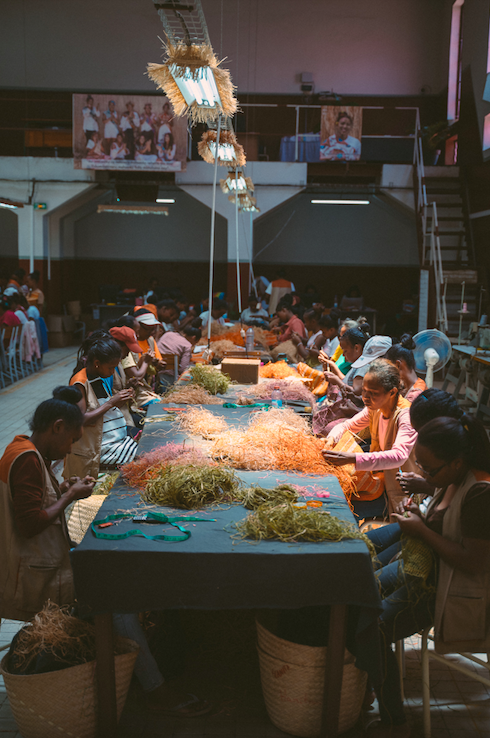
While Akbaraly underscored the importance of giving back dignity to the people and offering them stability by providing salaries that are above minimum and local living wage, she also said artisans are given free access to health care, medication, hygiene supplies, contraception, therapy sessions as well as legal consultancy. A child care area with around 50 children and a full-time teacher is also part of the atelier “because we noticed that many women didn’t come to work because they had to take care of their children.”
As most of the artisans have no basic education, another essential asset is providing it, ranging from language courses to financial literacy classes.
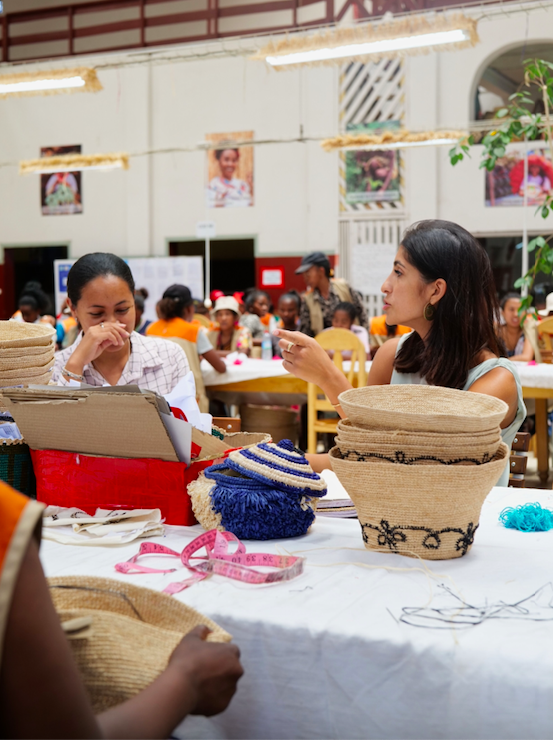
Managing the different backgrounds of the people involved in the project is among the biggest challenges Akbaraly has to face. “Growing up I’ve always suffered due to the strong empathy I felt towards people and the context I saw, but now it’s thanks to this trait that I can go on, put myself in the artisans’ shoes and understand what are their needs.”
The other key challenge is to bring international attention to the project and Madagascar’s overall potential. The brand is proving to be an effective vehicle, with the handmade production scaling up rapidly from 1,000 pieces crafted in the brand’s first year to 35,000 items currently. “And last year we’ve become a profitable company,” said Akbaraly proudly, without disclosing more financial figures.
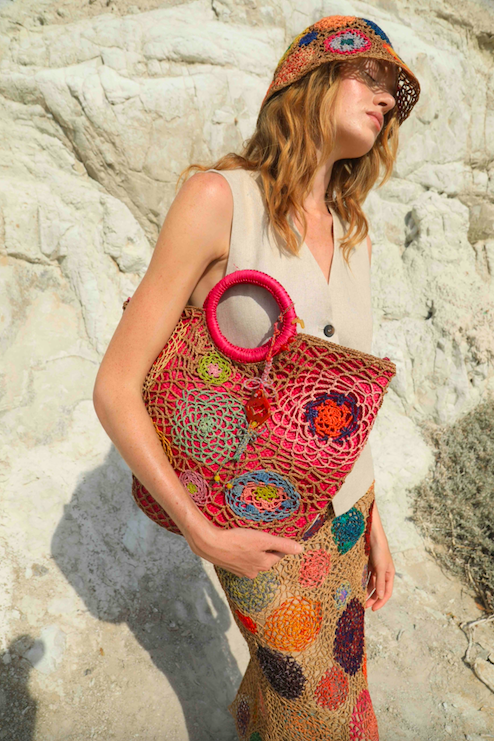
The brand’s products are a natural extension of the project’s overarching responsible approach. Made for a Woman works with a range of local partners and certified suppliers for its raw materials, mainly raffia, which is a staple of Malagasy culture. Fully biodegradable in less than 15 years, the material is dyed with organic colorants from coffee grounds and tea leaves or bolder natural pigments.
Scraps of the manufacturing process are repurposed in an upcycled collection of accessories dubbed Rainbow as well as donated to local non-governmental organizations. “On average, companies waste 30 percent of raffia; we managed to reduce this to 2 percent in a year,” said Akbaraly. Reusable and recyclable plastic-free packaging is handmade using raban, a vegetable fiber derived from raffia, too, and trees are replanted to reduce the business’ impact.
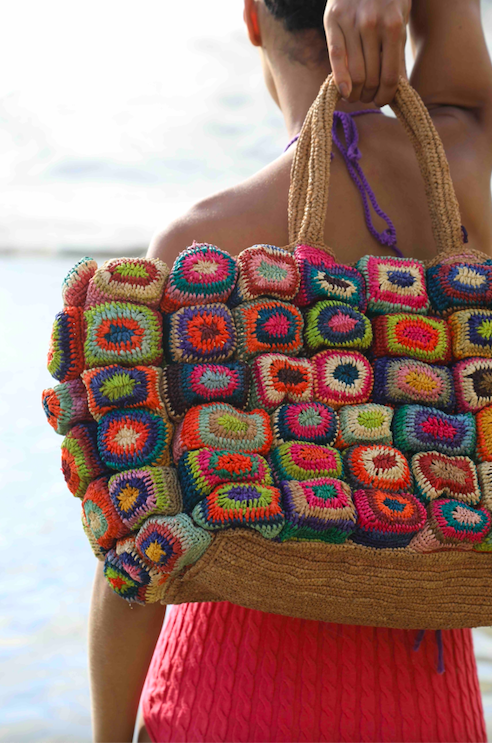
All these steps enabled Akbaraly to rack up sustainability awards, garnering attention from bigger groups in the process. After being recognized during the 2023 edition of CNMI Sustainable Fashion Awards as one of three finalists for the Emerging Designer category, brands and retailers reached out for collaborations.
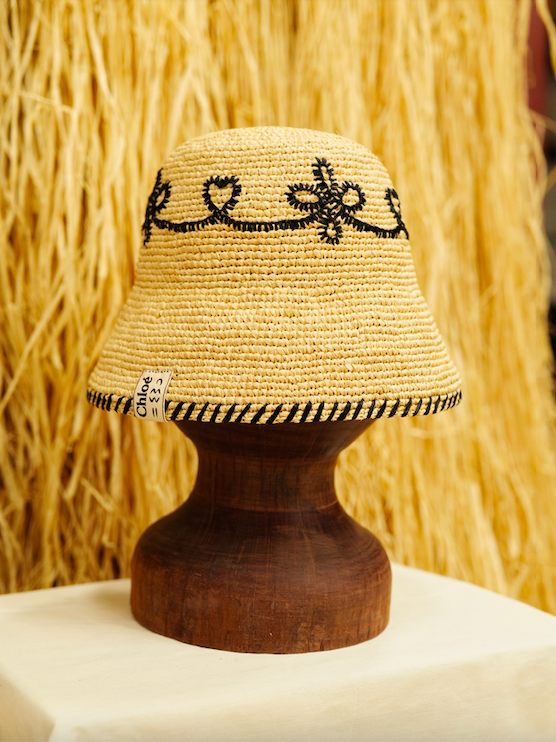
Under former creative director Gabriela Hearst, Chloé was the first big name to tie up with Made for a Woman for a capsule collection in 2023. The move was replicated this year, with a second drop last month, which included embroidered crochet hats in raffia inspired by floral motifs. Akbaraly stressed how endorsements like Chloé’s give further validation to her project, not excluding that there might even be more under the new creative direction of Chemena Kamali.
While talks with other fashion houses are in progress as well, Akbaraly is said to be exploring additional categories, like home decor. The brand has so far tiptoed into the segment with upcycled raffia poufs, textured baskets, woven chairs, patterned pillows as well as one-of-a-kind, made-to-order maxi carpets.
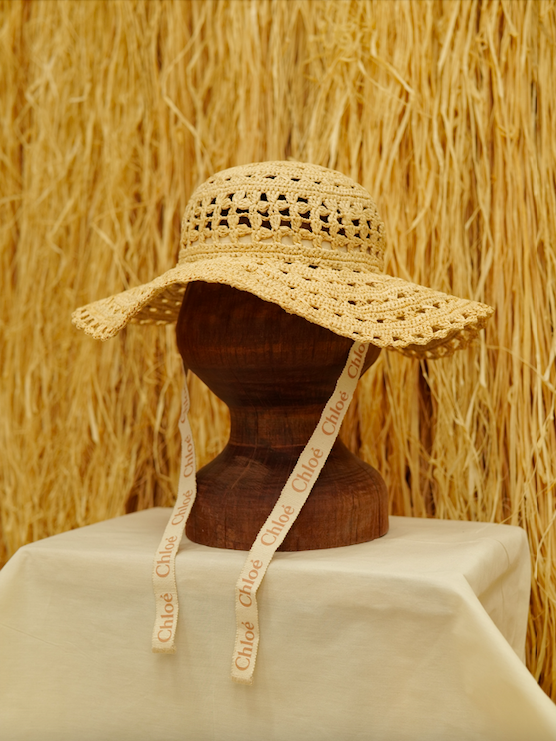
Launched with accessories first, Made for a Woman debuted a selection of ready-to-wear looks during Milan Fashion Week in September 2022. On that occasion, it was among the five brands spotlighted by the WAMI – We Are Made In Italy collective dedicated to upcoming Black, Indigenous and people of color designers.
Luxury multibrand store Modes got in touch for more pieces afterward, partnering for an exclusive collaboration launched in spring 2023 and available across its six locations, including Milan and Paris as well as prime resort destinations Porto Cervo, Portofino and Forte dei Marmi. As result, boho tops with floral embroideries, fringed skirts and summery dresses crafted from recycled raffia increasingly popped up in the brand’s overall offering.
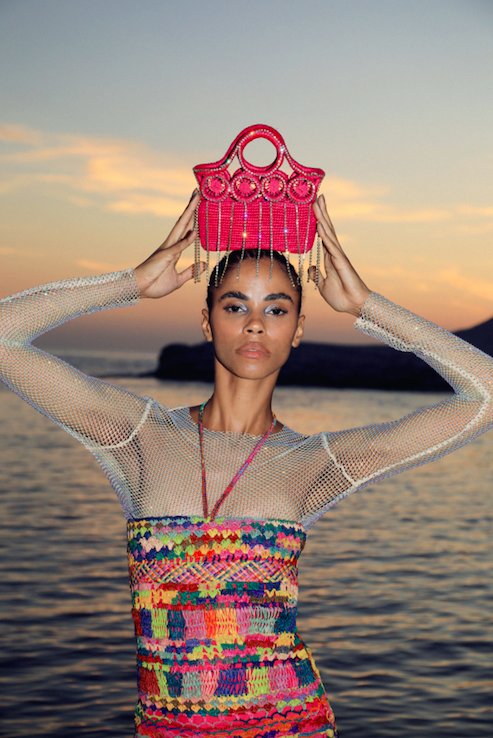
While a new capsule line with Modes is in the works, the brand’s own main spring 2024 collection saw the introduction of recycled cotton as an additional material, which will enable the brand to explore different fits going forward, said Akbaraly.
In addition to its e-commerce and Modes, the brand is available in Europe at the likes of Rinascente in Milan, Printemps in Paris, and Breuninger in Germany, to name a few, as well as platforms such as Moda Operandi.
On Tuesday, the company kicked off a series of physical pop-ups to reinforce its visibility. Installed on the fourth floor of Rinascente in Milan, the first one will run through the end of the month, to be followed by one at Breuninger in Munich from June 3 to 24 and at Dubai Mall, which will mark the debut of the brand in the Middle East.
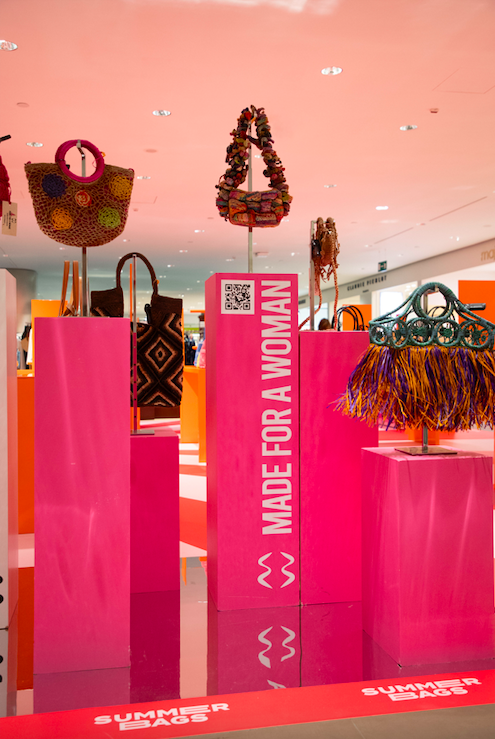
Akbaraly said Europe and China are currently the best-performing markets, but the U.S., Australia and Brazil are quickly picking up. The brand attracts different types of customers, encompassing from young women sensitive to the sustainable aspect and social values of the label to a more mature target looking for special pieces that can’t be found elsewhere.
Made for a Woman’s prices range from 180 euros to 540 euros for bags and 210 euros to 250 euros for hats. Apparel pieces retail between 360 euros for tops up to 1,000 euros for dresses, like the Diamond gown which takes around 35 days to be crafted.
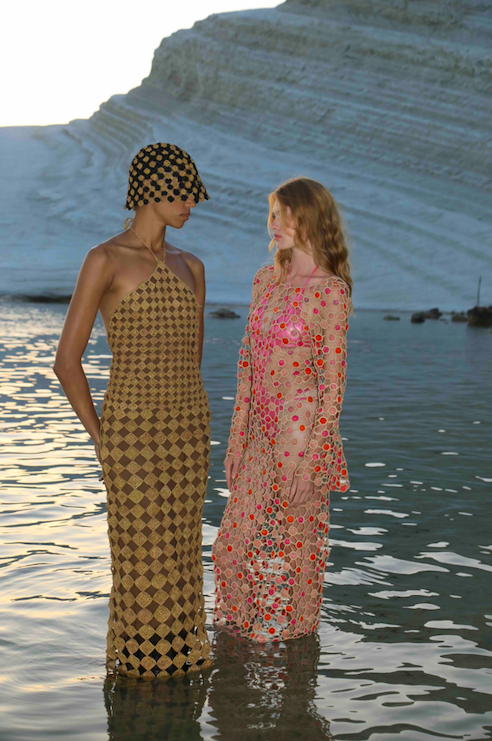
In particular, the assortment on the company’s e-commerce is divided not only by categories and prices, but also by the names of the key artisans who have crafted each piece, in an attempt to create a virtual bridge between artisans and clients.
To this end, last month the brand also partnered with AI-powered authentication services provider Certilogo to add special labels to its products starting from the spring 2024 collection. A special QR code enables each item to be authenticated, traced and accessed to find insights on materials and discover that specific artisan’s story.
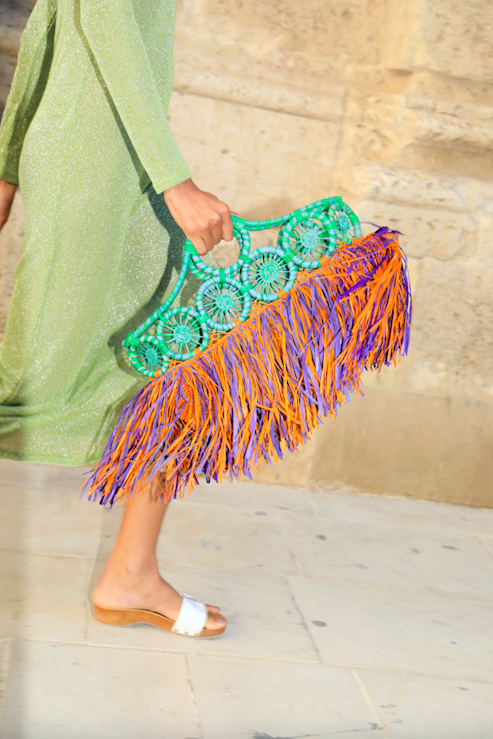
“Made for a Woman is not the most important part of the project. Today it works, but if tomorrow we need to focus only on the social part of the initiative, it would be great as well. The brand is just the vehicle,” said Akbaraly.
That’s why the entrepreneur puts the project’s best interests before her own. When asked if she could consider selling the company, she candidly admitted that’s the idea in the future.
“Not now, because I haven’t created all that I wanted to, yet. But the idea is to implement a strong structure and support it, because the bigger we get, the more complicated everything gets,” she said. “Of course, the idea is to remain involved, but at those levels [of bigger groups] they have the people and resources to [do it best].”
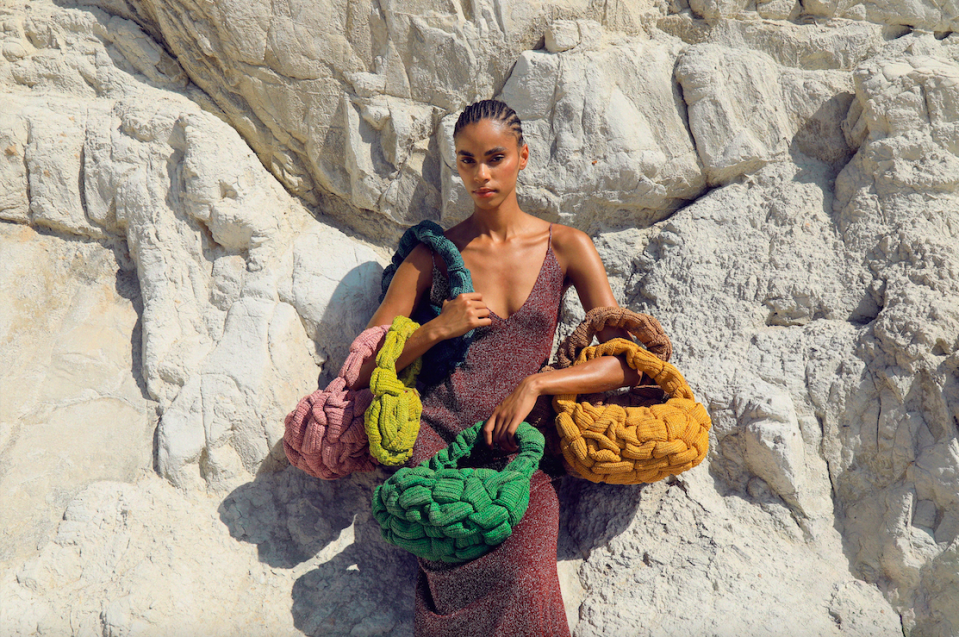
Best of WWD


